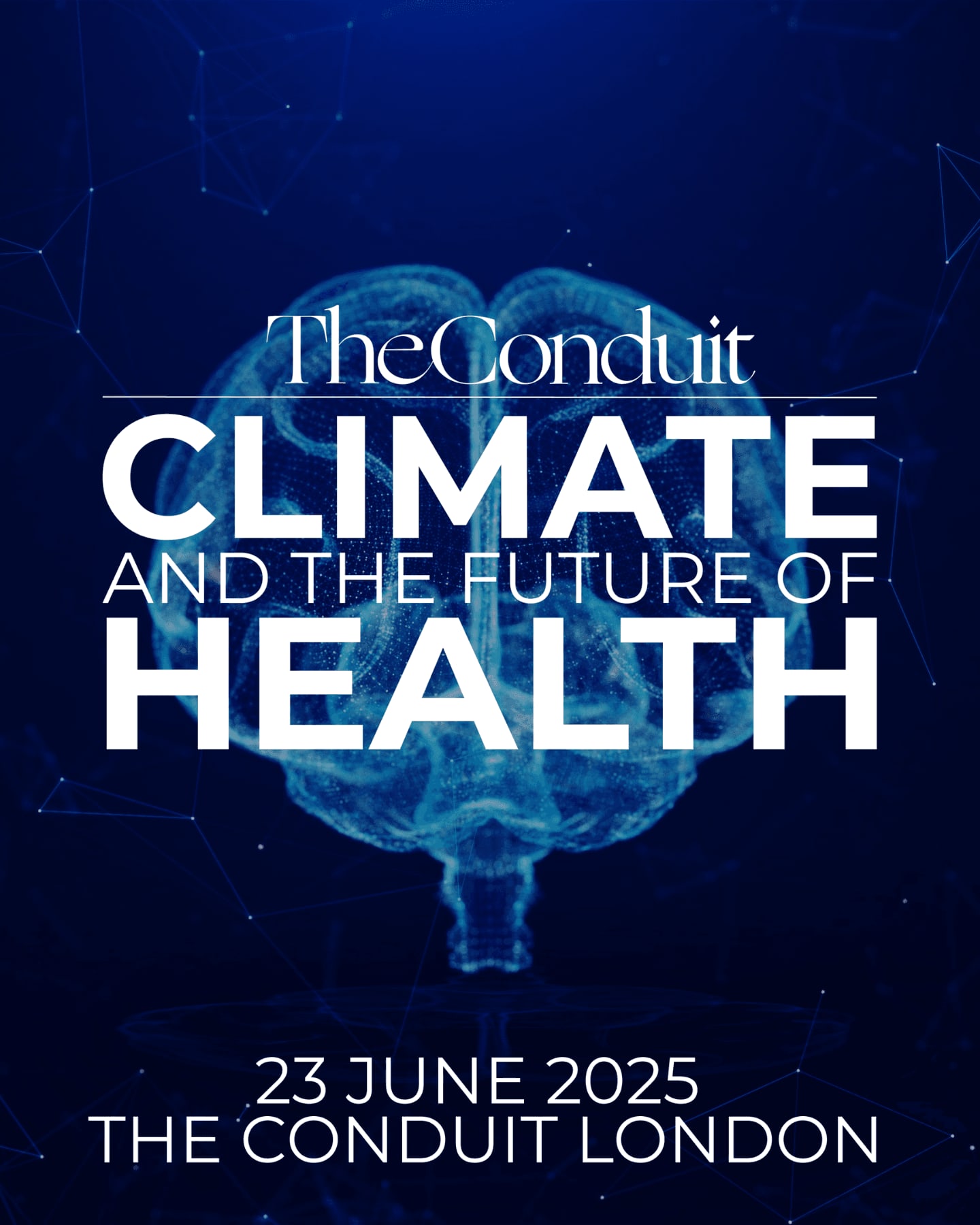Healing the Planet, Healing Ourselves: Climate & Health at The Conduit
From AI-powered health tech to regenerative land use, The Conduit Climate Week sent a clear message: Europe must act now by integrating climate, policy, and health strategies to build resilient, livable communities for generations to come.

Health on a Heating Planet: A Collective Awakening
At The Conduit Climate Week in London, global leaders, scientists, policymakers, and innovators came together to confront the twin emergencies of climate change and public health. The event’s flagship panel, Climate and the Future of Health, delivered a resounding message: the climate crisis is fundamentally a health crisis. For betterSoil, Azadeh Farajpour took part and emphasized the role of healthy soils. From heat-induced illnesses and food insecurity to the surge in respiratory diseases from pollution, climate change is already reshaping global health outcomes, but hope lies in collaboration. Institutions like the WHO, frontline innovators, and cross-sector advocates called for better integration of climate resilience into health systems and urban planning. We need systems that treat the planet and people simultaneously, not sequentially. Some of the spotlighted solutions ranged from nature-based therapy models to AI-driven predictive health technologies, as well as agri-tech innovations that enhance food systems and environmental resilience alongside targeted interventions in climate-affected communities. The convergence of technology, local knowledge, and holistic policy was framed as essential. betterSoil continues to emphasize the importance of restoring soil health to improve food systems, livelihoods, and long-term health—making it clear that the future of health lies in climate-smart ecosystems.
Cross-Sector Collaboration: Building a Resilient Future
A strong message from The Conduit Climate Week was that siloed approaches can no longer serve the scale of the climate-health challenge. The panel emphasized the need for cross-sectoral collaboration—bringing together health professionals, urban designers, environmental scientists, policymakers, entrepreneurs, and civil society. Participants discussed the urgency of building coalitions that can integrate environmental intelligence into healthcare systems and translate climate data into community-level action. There was particular emphasis on designing health systems that are both climate-adaptive and socially inclusive. For instance, panelists spotlighted how circular economies, green infrastructure, and digital monitoring tools must align with public health goals not as an afterthought but as a blueprint. The Conduit forum also created space for actionable commitments from public-private partnerships investing in carbon-conscious care models to local councils planning mental health support in climate-vulnerable neighborhoods. The consensus was clear: the climate-health nexus is not just an academic concept, but a call to reshape how Europe builds resilient societies.





